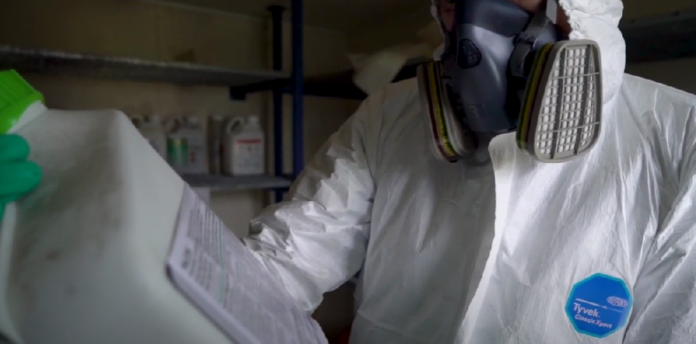Chemicals such as animal medicines, sprays, fertilisers, oils, disinfectants, dairy detergents, and slurry gases can pose a “considerable” risk to farmers.
That is according to Teagasc, who has launched a new joint collaborative farm safety digital media campaign with the HSA, Farm Safety Partnership and FBD Insurance.
The bodies have produced a series of short videos containing industry-leading life-saving advice covering livestock handling, farmer’s health, sheep farming, chemicals, children, slurry handling, harvesting and farm machinery.
In its chemical safety video, the partners outlined the dangers of chemical exposure, resulting in health impacts such as cancer, birth defects, burns, skin rashes and lung, liver, or kidney disease.
The bodies stressed that you could be at risk if you do not use chemicals safely.
The potential of chemicals on your farm to cause harm depends on a number of factors, including how dangerous the chemicals may be and how long and how often you are exposed to them.
Handling chemicals
Tips in the video:
- Only a competent person should handle and use chemicals;
- Undertake approved training as a Professional User in pesticide application;
- Use the recommended personal protective equipment (PPE);
- Keep all chemicals in locked stores;
- Keep chemicals out of children’s reach;
- Store and use chemicals correctly to protect your health and safety;
- Read the information on the product label and safety data sheet (SDS), and put it into practice – information on hazards of the chemical, how to use, handle, store and dispose of it safely;
- Always read the container label before use;
- Always assess the sprayer and ensure it is in good working order before mixing chemicals;
- Ensure you wash the sprayer correctly when you have completed the task;
- Thoroughly wash your hands after use;
- Never use formaldehyde in a roofed area as it is a carcinogenic – product is combustible and can form explosive vapour/air mixtures;
- Talk to your vet about alternatives;
- Do not enter an area where slurry is being agitated;
- Take great care and always wear the recommended PPE when handling dairy detergents.
Previous article on farmer health as part of this series.





